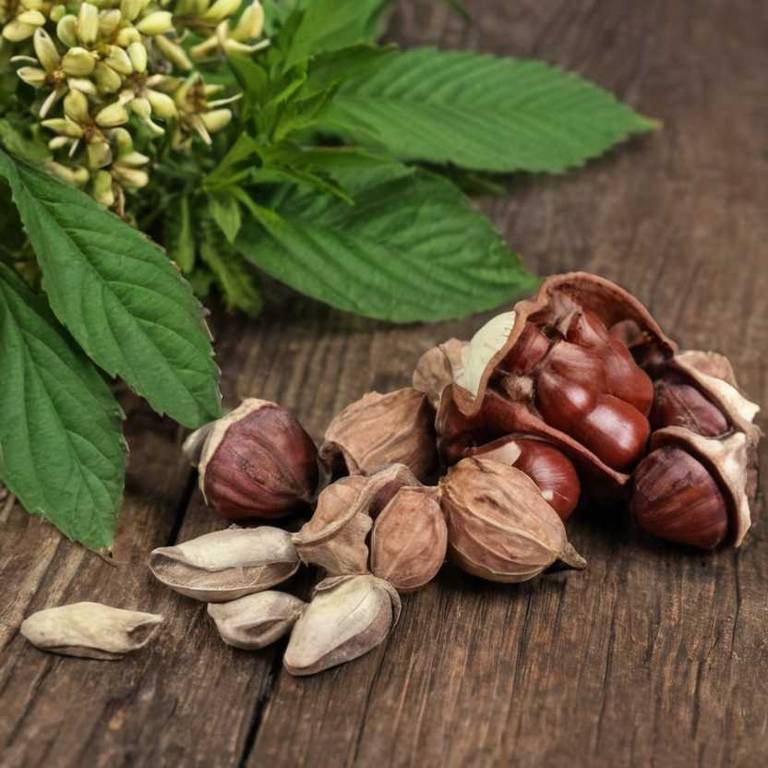Horse Chestnut (Aesculus hippocastanum)
Horse Chestnut (Aesculus hippocastanum) is a member of the Sapindaceae family, native to Southeastern Europe, Southern Russia, and Western Asia. Traditionally, its seeds, bark, and leaves have been used for decoctions, infusions, and powders.
This herb is particularly valued for its tonic, sedative, and anti-inflammatory actions, and has a long history of use in european herbal medicine, mediterranean herbal traditions, and traditional chinese medicine.

Quick Facts / Key Information
| Common Name | Horse Chestnut |
|---|---|
| Scientific Name | Aesculus hippocastanum |
| Plant Family | Sapindaceae |
| Genus | Aesculus |
| Species | hippocastanum |
| Native Range | Southeastern Europe, Southern Russia, Western Asia |
| Plant Parts Used | Seeds, Bark, Leaves |
| Primary Medicinal Actions | Tonic, Sedative, Anti-Inflammatory |
| Primary Traditional Systems | European Herbal Medicine, Mediterranean Herbal Traditions, Traditional Chinese Medicine |
| Historical Preparation Methods | Decoction, Infusion, Powder |
Botanical Identity
- Scientific Name
- Aesculus hippocastanum
- Common Name
- Horse Chestnut
- Synonyms / Alternative Names
- Sweet Chestnut, Common Horse Chestnut, Horse Chestnut
- Plant Family
- Sapindaceae
- Genus
- Aesculus
Botanical Description
- Growth Habit
- Perennial herbaceous plant.
- Height
- It typically reaches a height of 10 to 20 meters.
- Leaves
- Ovate leaves with a doubly pinnate venation, upper surface glabrous and dark green, lower surface pale green with a prominent midrib and stomatal bands.
- Flowers
- Inflorescence consists of clustered flowers with white petals and yellow staminodes, actinomorphic symmetry, and five sepals that are reflexed at maturity.
- Stems
- Woody, erect, branching in an alternate pattern with smooth, glabrous surfaces and nodes bearing leaf scars.
Traditional Uses / Historical Use
Traditional Systems
- European Herbal Medicine
- Mediterranean Herbal Traditions
- Traditional Chinese Medicine
Historical Preparation Methods
- Decoction
- Infusion
- Powder
- Poultice
Medicinal Actions
- Tonic
- Historically regarded as a calming tonic, for long-term use contexts.
- Sedative
- As described in traditional systems, a warming sedative, in calming-focused applications.
- Anti-inflammatory
- In herbal texts, considered a cooling anti-inflammatory, in topical or internal use contexts.
- Astringent
- In herbal literature, noted as a gentle astringent, for surface-level applications.
Active Compounds
- Flavonoid
- A widely occurring class of plant polyphenols found in leaves, flowers, and fruits.
- Saponin
- Plant-derived compounds characterized by their soap-like properties.
- Tannin
- High-molecular-weight phenolic compounds found in many plant species.
- Coumarin
- A group of secondary metabolites present in seeds, roots, and leaves.
Modern Research Overview
Contemporary research on this plant includes areas such as chemical analysis, laboratory-based studies, and observational research. Detailed summaries of published findings are not included at this stage and will be added during future content updates.
Safety & Contraindications
- General Precautions
- Reports outlining specific general precautions for this herb are limited.
- Contraindications
- Certain contraindications have been reported in relation to the use of this herb.
- Allergies
- Sensitivity or allergy-related effects have not been clearly established.
- Drug Interactions
- There is insufficient evidence to determine whether this herb interacts with pharmaceutical drugs.
- Toxicity
- The use of this herb has been linked to reported toxic effects.
- Pregnancy & Breastfeeding
- Information addressing pregnancy and breastfeeding-related safety for this herb is limited.
Preparation & Usage Methods
- Infusion
- Water is poured over plant material and allowed to steep before straining.
- Decoction
- This method uses sustained heat to extract compounds from firm plant structures.
- Poultice
- Fresh or dried plant material is applied externally to the skin.
- Tincture
- Plant material is macerated in alcohol to create a concentrated liquid extract.
- Powder
- Powdered preparations use finely milled plant parts.
Growing, Harvesting & Storage
Growing / Cultivation
- Soil
- Prefers loamy soil with well-drained conditions. Typically grows best in organically rich soils.
- Sunlight
- Thrives in partial shade. Tolerates full sun to partial shade.
- Watering
- Prefers well-balanced moisture levels. Tolerates periodic dry conditions.
Medical Disclaimer
The information provided on this page is for educational and informational purposes only. It is not intended to diagnose, treat, cure, or prevent any medical condition. Always consult a qualified healthcare professional before using any herb for medicinal purposes.